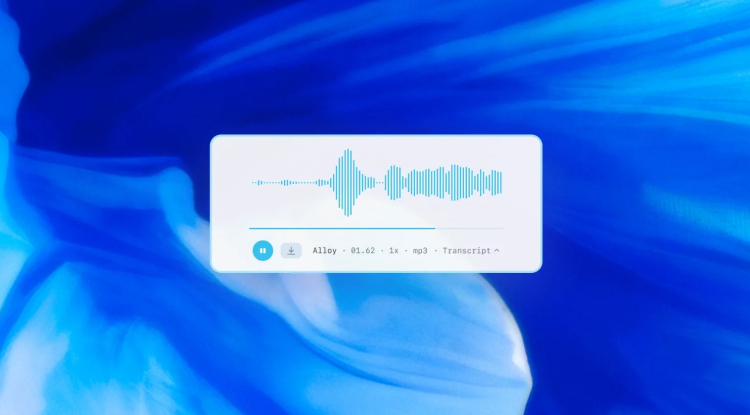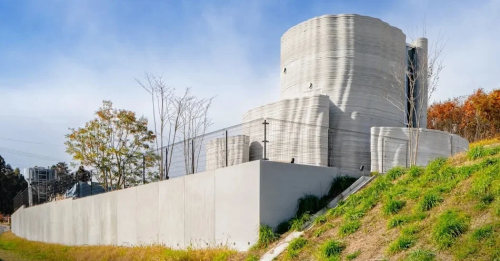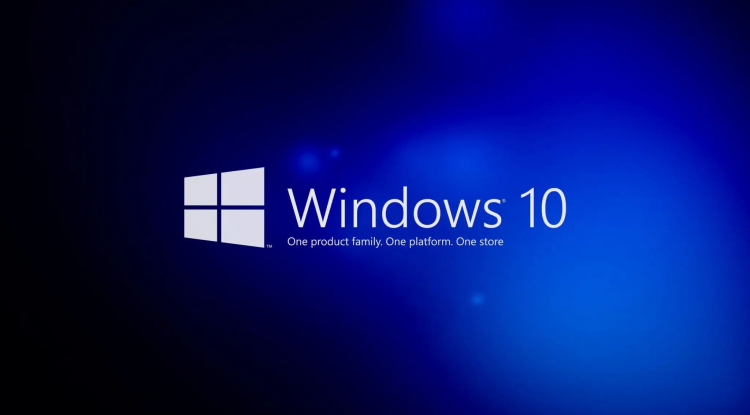AMD introduced EPYC 9004 (Genoa) server processors - up to 96 Zen 4 cores, DDR5 and PCIe 5.0 support
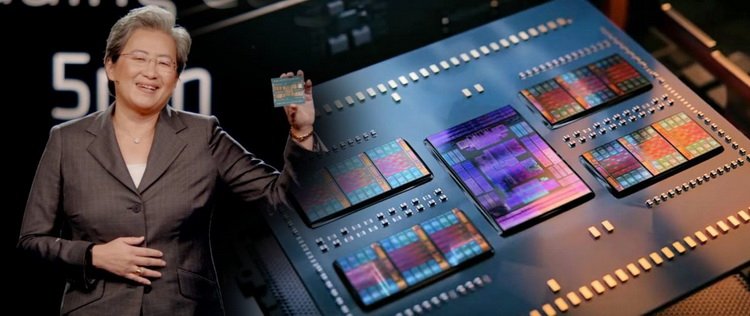
AMD has officially unveiled the EPYC 9004 series processors, codenamed Genoa, for servers and data centers. They contain up to 96 high-performance cores based on Zen 4 architecture. According to AMD CEO Lisa Su, the number of transistors in Genoa chips is 90 billion. AMD itself characterizes the new products as processors with unsurpassed performance, advanced energy efficiency and a new generation architecture.
Genoa processors contain twelve 5-nm CCD crystals (chiplets) with computing cores and one 6-nm crystal with input-output interfaces. Each processor core has 1 MB of L2 cache, which is twice as much as the previous generation EPYC chips based on the Zen 3 architecture. There is also 32 MB of L3 cache per CCD chiplet.
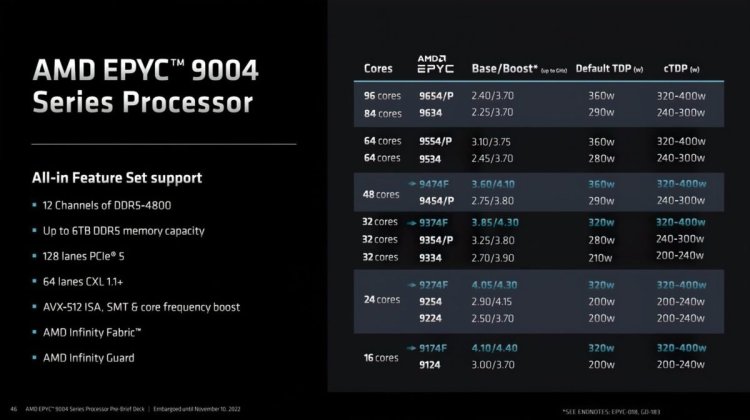
The new EPYC Genoa supports up to 6 TB of 12-channel DDR5-4800 RAM, 128 PCIe 5.0 interface lanes. Although AMD has not decided on the latter, since during the presentation the figure of 160 lines was mentioned. In addition, the processors are announced to support CXL 1.1 and partially CXL 2.0, which provides significant memory expansion capabilities for data center applications. Let us immediately note that AMD has changed the processor socket for server chips: SP3 has been replaced by SP5.
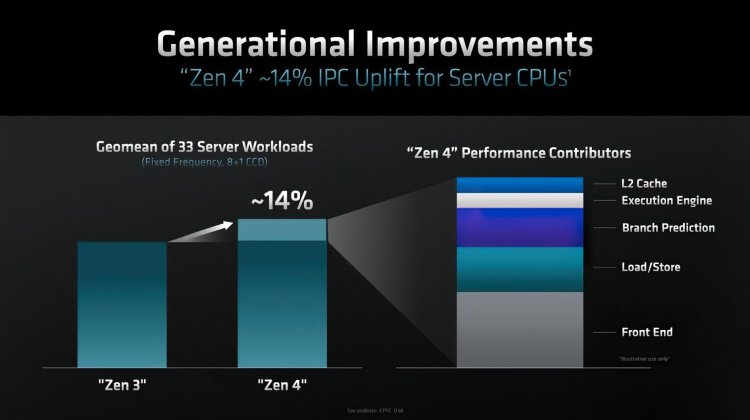
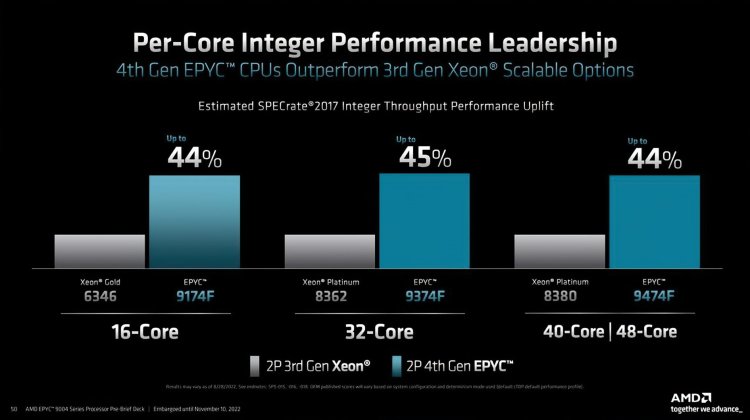
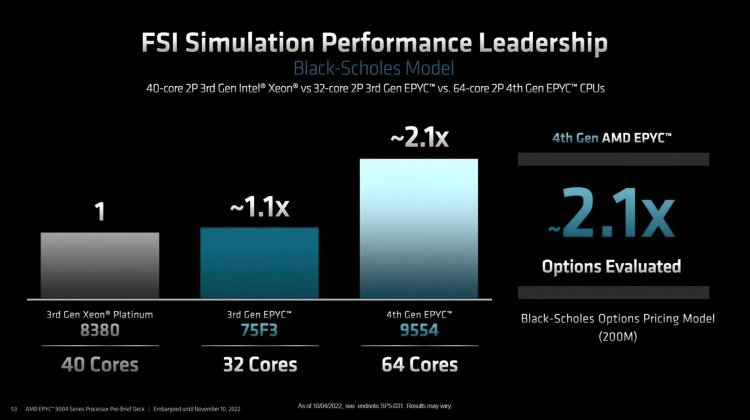
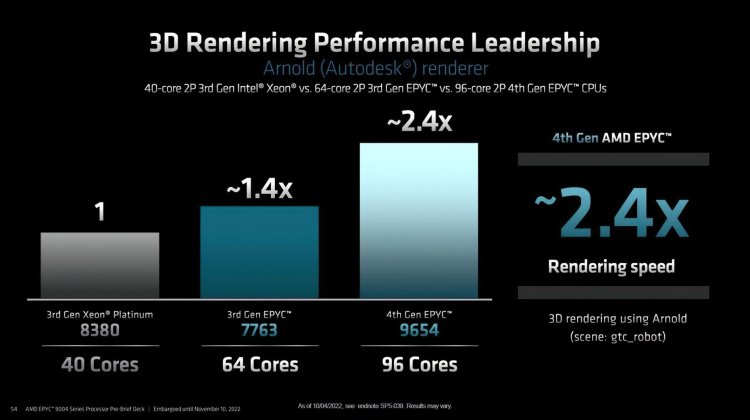
AMD claims a 14% increase in instructions per clock (IPC) for EPYC Genoa compared to previous generation solutions at the same TDP. At the same time, the performance of the new chips per watt of energy consumption in certain tasks has increased by up to 2.7 times compared to predecessors based on Zen 3. Support for new instructions is also noted, in particular AVX-512.
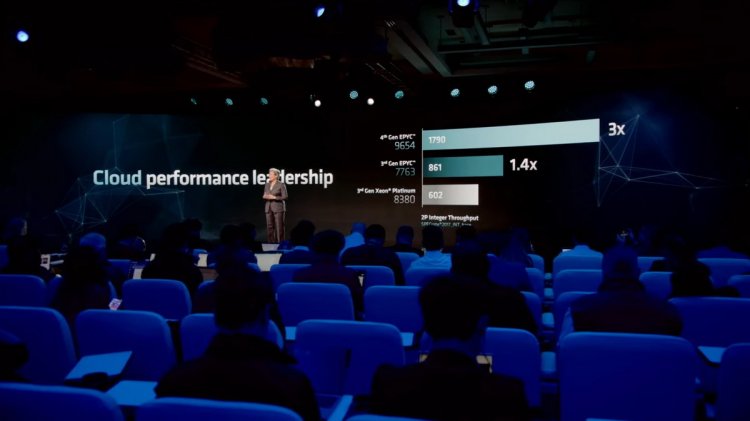
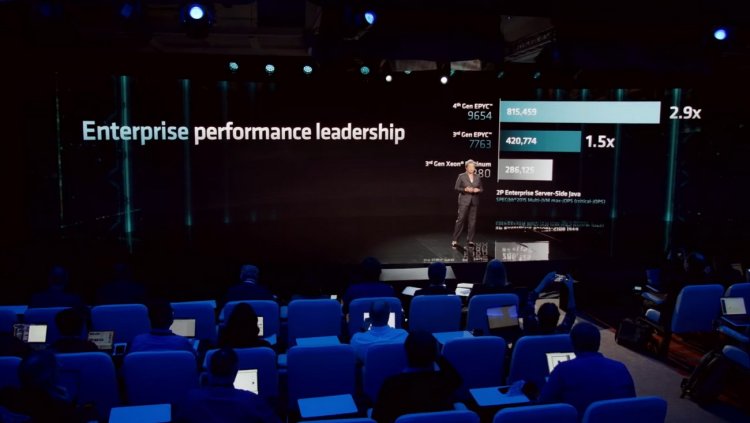
In tasks related to cloud computing, the performance of the new chips is up to three times higher than that of competitors. And in a direct comparison of per-core performance, EPYC Genoa are up to 55% faster than Intel Xeon processors. True, we are talking about the 3rd generation Xeon Scalable, which is now current for Intel - the Xeon Max presented yesterday on the new architecture will only be released in January.
In total, AMD presented 18 models of EPYC Genoa processors, conditionally divided into various segments for specific tasks. For the HPC and cloud segment, the manufacturer has provided chips with a number of cores from 48 to 96 and a TDP from 280 to 360 W. For the corporate sector, high-performance models will be offered with a number of cores from 16 to 48 and a TDP from 320 to 360 W. For small businesses, the company will offer models with 16 or 32 cores and a TDP from 200 to 280 W.
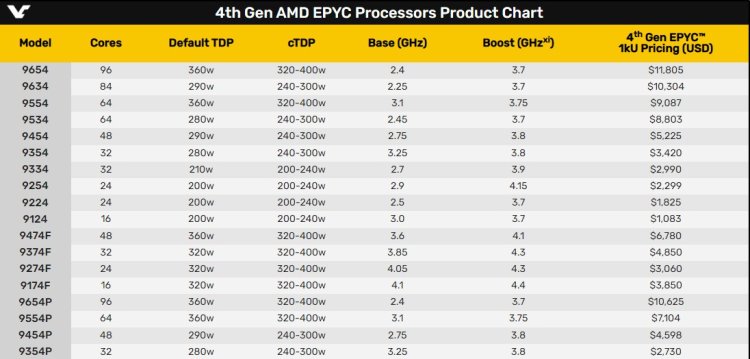
Base clock speeds range from 2.25 to 4.1 GHz, and boost clocks range from 3.7 to 4.4 GHz. Note that a number of models support TDP settings of up to 400 W. As for prices, they range from $2,730 to $11,805 per processor in a batch of 1,000 pieces.
During the presentation, AMD paid special attention to the energy efficiency of the new Genoa processors, noting a significant increase in the cost of maintaining server systems per kilowatt of energy consumption over the past year. AMD claims that systems based on EPYC Genoa will cost significantly less to maintain than systems based on competitive solutions. AMD chips are up to 52% more energy efficient than their competitors.
AMD EPYC Genoa processors will be available starting today. The company also recalled that in the first half of 2023 it is going to release EPYC Bergamo processors optimized for cloud computing. These processors, as previously promised, will receive up to 128 cores (and 256 threads), while maintaining compatibility with the SP5 socket.
EPYC Genoa-X processors with additional cache will also appear in the first half of next year. Like Milan-X, they will be targeted at a specific class of workloads that benefit from increased cache capacity. These are, for example, calculation tasks and DBMS. And in the second half of next year, AMD will expand its range of Zen 4 server processors with Siena chips. They will be optimized in terms of energy efficiency and will offer up to 64 cores.
Share
What's Your Reaction?
 Like
0
Like
0
 Dislike
0
Dislike
0
 Love
0
Love
0
 Funny
0
Funny
0
 Angry
0
Angry
0
 Sad
0
Sad
0
 Wow
0
Wow
0
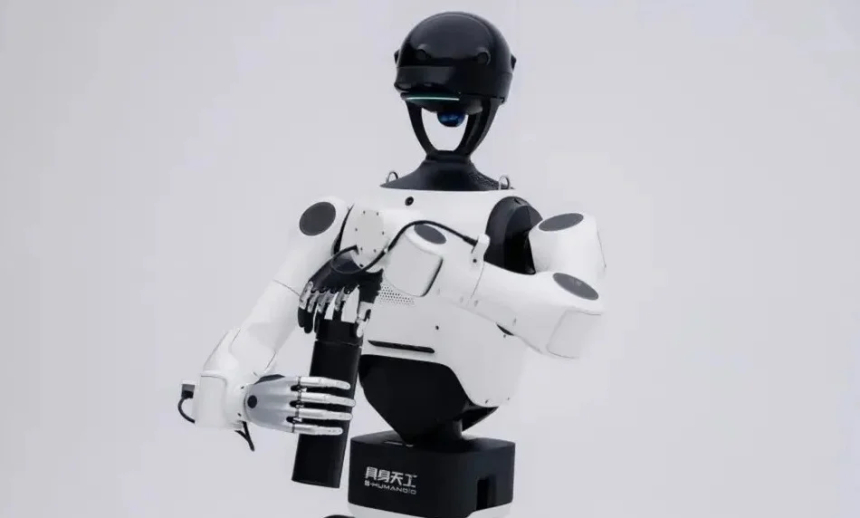

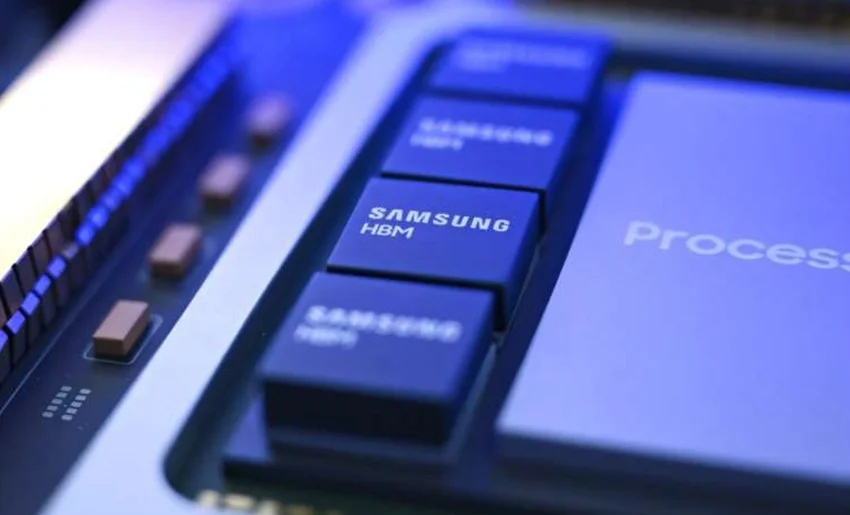


![Transfer/ Postings Senior Superintendent Police Hyderabad [Notifications]](https://pakweb.pro/uploads/images/202402/image_100x75_65d7bb0f85d5f.jpg)
![Amazing Text Animation Effect In CSS - [CODE]](https://pakweb.pro/uploads/images/202402/image_100x75_65d79dabc193a.jpg)


